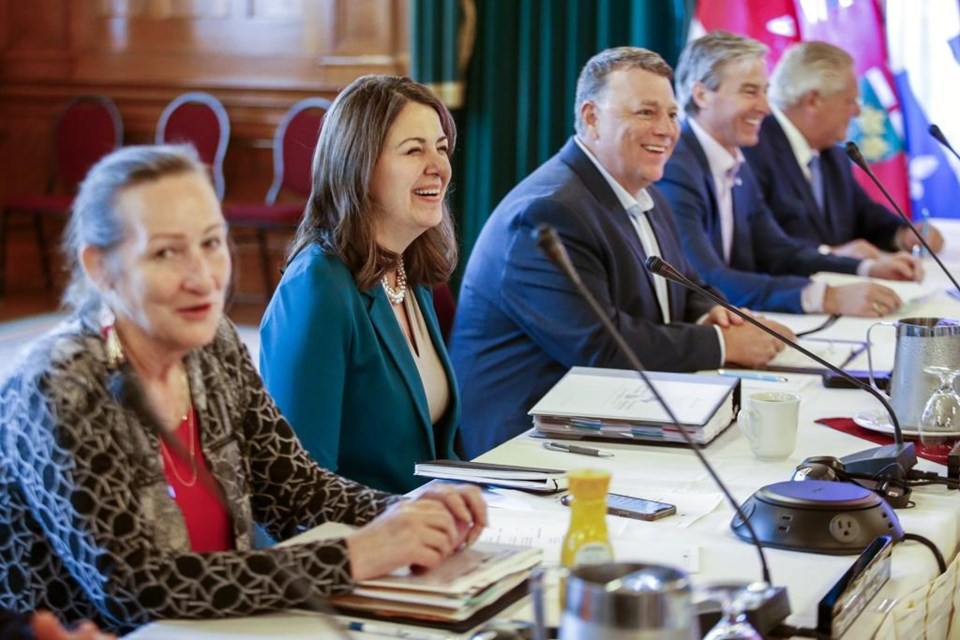WINNIPEG — Canada's premiers reiterated calls for more federal help for health care Tuesday, while acknowledging that provinces can learn from each other in areas such as worker retention.
The premiers, at their annual conference, discussed $46 billion in new health funding that Prime Minister Justin Trudeau offered in February, in exchange for provinces and territories committing to targeted reforms. All but Quebec have accepted the funding offer.
Manitoba Premier Heather Stefanson, host of the meeting, said the extra funding is welcome, but amounts to roughly two per cent of provincial health budgets.
The premiers called for help in related areas.
The federal government should streamline the process for recruitment of health-care workers from abroad, Alberta Premier Danielle Smith said.
"They are principally responsible when it comes to immigration and bringing people into the country, which is why they play a crucial role in that," she said.
"We've all been able to negotiate some arrangements that have allowed for us to be able to bring in new professionals. We've got (a memorandum of understanding) with the Philippines, for instance."
Smith added Ottawa could also help ensure that health-care workers can move seamlessly between provinces.
British Columbia Premier David Eby echoed those sentiments.
"How do we use the immigration system to support the health care that British Columbians need? How do we use the federal government's national authority to set standards around the mobility of health-care workers?" he said.
The premiers also met with health worker representatives, who said the provinces can take action themselves.
The Canadian Federation of Nurses Unions put forward several recommendations to the premiers, such as setting minimum nurse-to-patient ratios and putting limits on safe hours of continuous work.
Stefanson said the premiers had a "great discussion" with members of the nurses union.
She said the premiers plan to get together again later this year for a summit on health care to share best practices and discuss how provinces can work together on recruitment, retention and training of workers.
"I think we've made significant headway, frankly, but I think also we're listening, we're learning," Stefanson said. "We're not afraid to have those conversations. That's why we're all there right across the country listening to nurses … about how we can do things better."
Ontario Premier Doug Ford said his government wants to collaborate with Ottawa on bringing in workers from many different fields.
“We’re in desperate need of people right across the province. I think you’re hearing that from every single premier," he said.
Health care is not the only topic of the three-day conference, which is to conclude Wednesday.
Stefanson said the premiers have also asked the federal government to take "urgent action" to reform the bail system in response to concerns over crime.
"We cannot afford to wait longer for better protection from random violence caused by repeat and dangerous offenders and to better target criminals using guns and other weapons," she said.
Ottawa has introduced a bill that aims to reform the bail system. It would place a reverse onus on serious repeat violent offenders and those facing weapons charges. That would mean it's up to those defendants to show the court why they should be released on bail, as opposed to the Crown having to show why they shouldn't be.
The premiers also discussed ongoing affordability issues, housing shortages and strengthening the labour force, Stefanson said.
This report by The Canadian Press was first published July 11, 2023.
— with files from Jeremy Simes in Regina.
Steve Lambert, The Canadian Press


